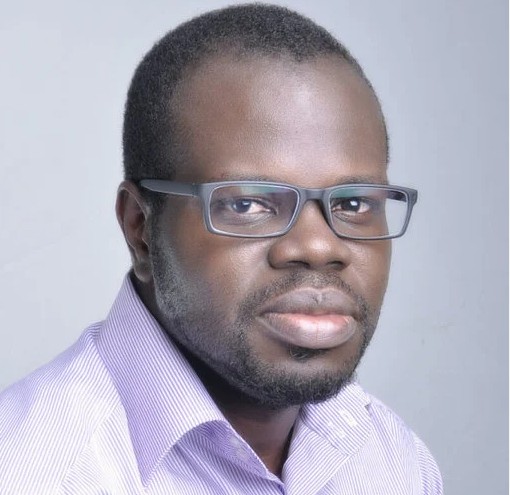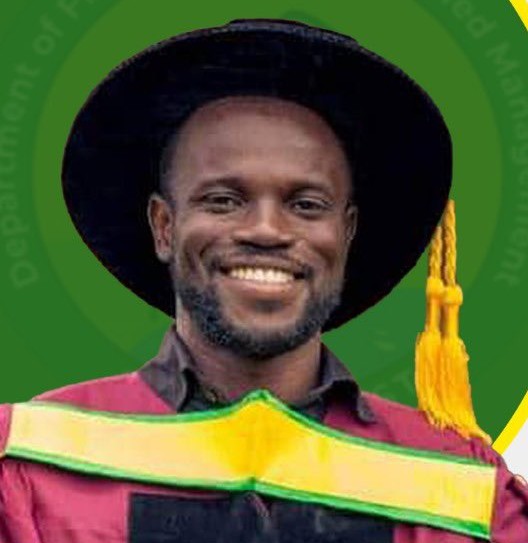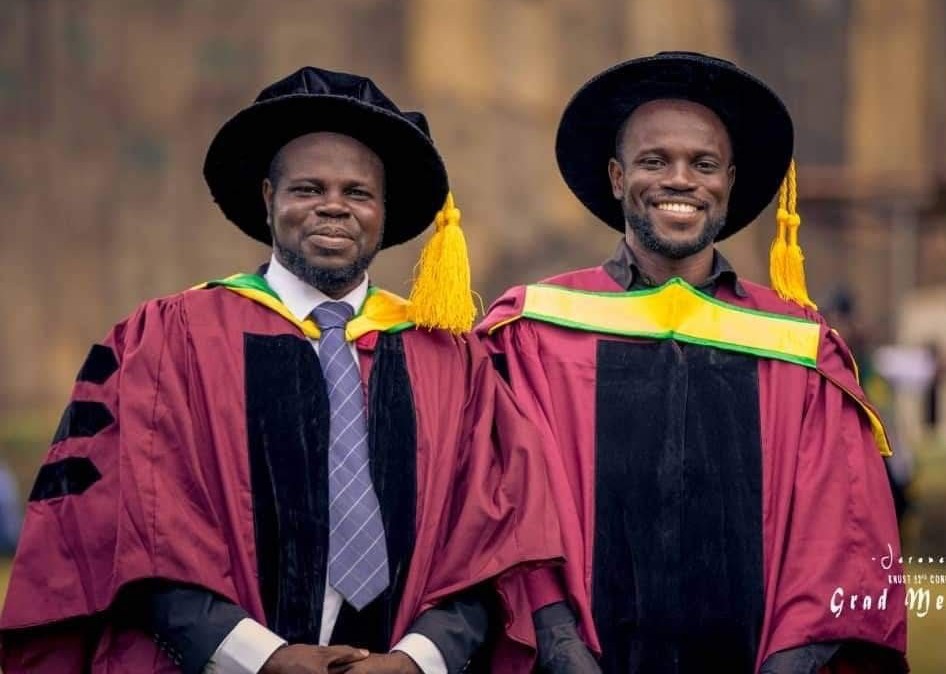Two academics at the Kwame Nkrumah University of Science and Technology (KNUST) Kumasi, Christian Obirikorang and Kwasi Adu Obirikorang, have been promoted on the same day, continuing a shared journey that has taken them from postgraduate studies to the highest ranks of scholarship in molecular medicine and fisheries.
Chris, the first child, and Kwasi, the third child of their parents, have often seemed destined to move in rhythm with one another’s achievements. On a day in KNUST’s academic calendar, the two stood side by side as they received their MPhil and PhD degrees.
Years passed, and again, they rose together: first to Senior Lecturer, then to Associate Professor. And now, in a moment that feels almost scripted by providence, they have both been promoted once more, Christian to Professor and Kwasi to Associate Professor, on the very same day.

Prof. Christian Obirikorang, of the Department of Molecular Medicine, has spent his career working at the microscopic level of human health. His research looks at diseases such as HIV, Hepatitis B, and Type 2 Diabetes.
He studies how very small changes in our genes, known as single nucleotide polymorphisms, can make some people more likely to get sick or to recover differently from others.
By identifying these genetic fingerprints, his work helps doctors understand who is at risk, how illnesses might develop in each person, and what treatments can work best. In simple terms, he is helping move Ghana’s health care closer to personalized medicine, where care is tailored to the individual rather than one-size-fits-all.

Prof. Kwasi Adu Obirikorang, of the Department of Fisheries and Watershed Management, has focused his work on the health of Ghana’s waters and the future of its aquaculture industry.
He looks at how to grow fish more sustainably so that farmers can earn a living while feeding the nation. His projects include finding better and cheaper food for tilapia by replacing expensive imported fishmeal with proteins from oilseeds.
He has also worked on using solar-powered machines to keep water rich in oxygen so that fish can grow well and avoid dying from suffocation, a common problem in fish ponds.
Through this, he is improving the quality of farmed fish, cutting down costs for farmers, and protecting the environment.
Together, the two represent the best of KNUST’s spirit. One works in the laboratory, uncovering the secrets of human health, while the other works in the field, helping farmers build stronger livelihoods.
As Dr. Benjamin Apraku Gyampoh, Senior Lecturer at the Department of Fisheries and Watershed Management in the Faculty of Renewable Natural Resources at KNUST, Kumasi, aptly put it: “Beautiful. Made in KNUST.”
| Story: Emmanuel Kwasi Debrah (URO) |


















